Annually on May 9, Russians celebrate the victory over Nazi Germany in the World War II. This year Victory Day military parade was held in 24 cities with more than 38,000 troops participating, of which 11,000 marched in Moscow Red Square.
Also 101 military vehicles and 68 airplanes and helicopters participated in the parade that was comparable in scale only to the parade of the 65 anniversary of Victory in 2010.
Here is an English coverage of the event by the Russian propaganda TV station “Russia Today”.
The tradition of the annual military Victory parades on May 9 was introduced by Boris Yeltsin in 1995, the year of the 50th anniversary of the victory.
The first Victory Day parade was held on June 24, 1945, and the second in 20 years later in 1965, under Leonid Brezhnev, who made the Victory Day an annual day off.
The costs of Victory Parades are never officially released in Russia. The 2012 parade, according to a journalist’s estimation, including festivities of on the day were equal to 1.5 billion (about $50 million).
Despite the high costs, the majority of Russians are against the abolition of the parade. According to a 2012 poll, 91% of the Russian population support the idea of a military parade and only 7% preferred to spend this money for social help for the needy.
Meanwhile, Russian Internet is full of articles and comments criticizing the parades. The authors of these articles remind readers that, despite of numerous promises of Russian government, a lot of old people – veterans of WW II – still do not have decent housing with running water and indoor toilets. The media continuously talks about veterans begging on streets to get money for food and prescription drugs.
The remains of numerous Russian soldiers who died during the WW II are still not buried. According to historians about 5 million people are still considered to be missing in the WW II. Every year the remains of about a thousand soldiers are found on the former battlefields of WW II in former Soviet territories. Most of the findings are made by volunteers at their own expense. The state does not participate in this activity; often it puts obstacles in the way of volunteers’ work.
The attitude of the democratic opposition to the Victory Celebration of this year was well summarized in the radio interview of one of the popular Russian writers and journalists, Victor Shenderovich:
“In the few decades of my life the tone of this holiday has changed a lot. It used to be, indeed, a holiday ‘with eyes full of tears…’ It was the day to remember those who never returned.
“I think, unfortunately, today the tone has changed significantly. Although, it is still a popular festivities, and it’s enough to go out the a street in order to see that it is a real national event. But the government has ‘nationalized’ it very much! As we saw it today it was the state’s rather than the people’s holiday; it was pretty much a PR campaign.
“As the sayings go: ‘What all these is about?’ ‘What this story is about?’ Now, what May 9 is about? Judging by the missiles in the Red Square and the broad smile on the face of Putin sitting on the podium – it is about how tough we are, as a state power, about the fact that we won and we will always win. And Putin was talking about it. The idea is we are still surrounded by enemies. By the way, in his speech Putin hadn’t said a word about our allies”.
On the evening of May 9 anti government activists blocked the Tverskaya Street (the main street of Moscow near Kremlin), deploying huge banner “Death to Kremlin occupants.” They lit torches and marched, chanting anti-Putin slogans.
“Today in Russia invaders are in power. Not Germans, but homegrown in Kremlin, – says the statement of the protesters. “Putin has managed to achieve what Hitler failed to do: he actually had turned Russia into a colony. He’s deprived people of every conceivable right and transformed them into frightened obedient flock. “
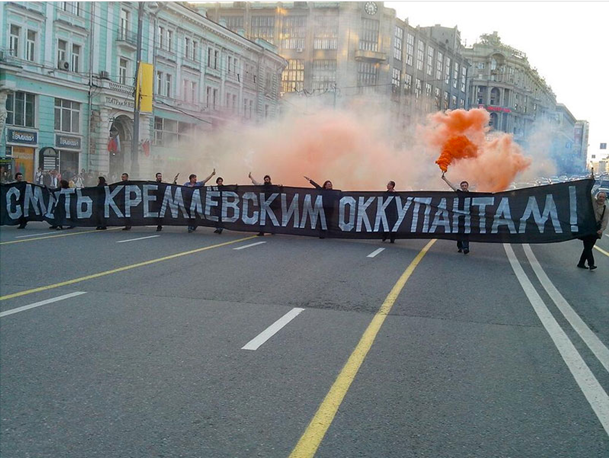
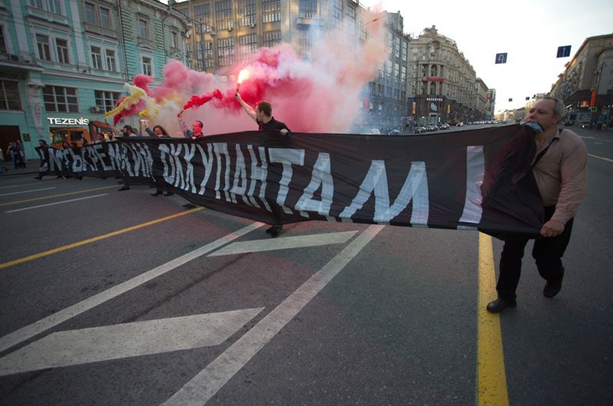
The action lasted 8 minutes, until all 14 participants were arrested.
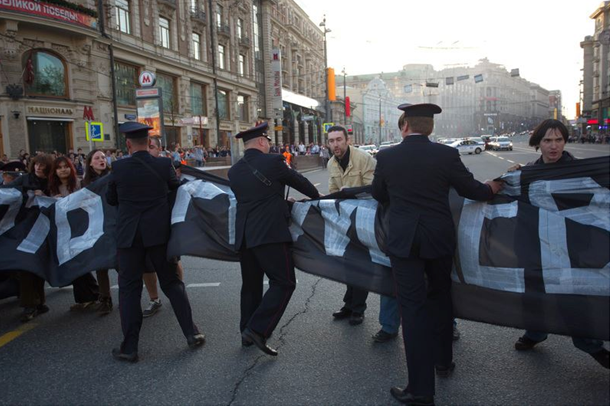
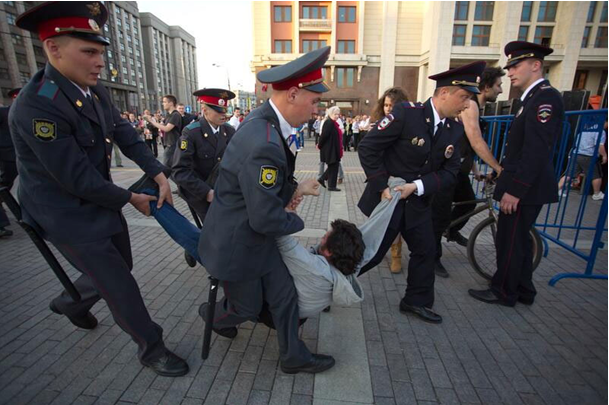
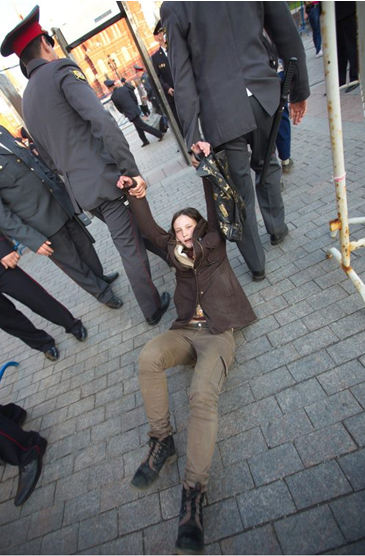
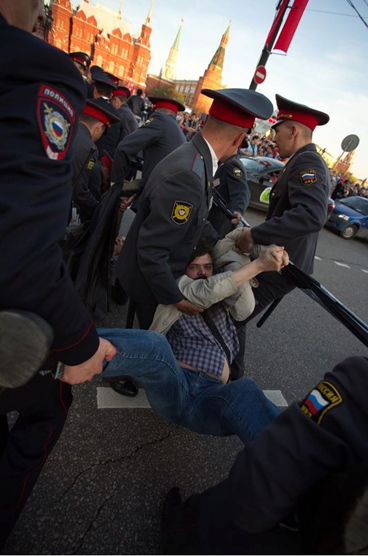
40 people were detained on May 9 in Moscow during various protest actions.

